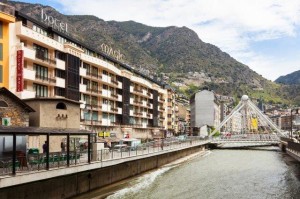Spain Tax Residency Cases: when the devil is in the detail
The above proverb often implies that details might cause failure, and failure is what occurred to the three real test-cases (below) who thought that, by having a tax-residence-of-convenience status (Andorra and Switzerland) and spending a short time there, they would be shielded from the action of the AEAT (Spanish Tax Office).
TEST CASE 1: A self-defined Swiss tax resident lost an interesting case brought by the Spanish Tax Office who deemed him a resident of Spain. The tax payer had argued that, according to the DTA (Double Taxation Agreement) Spain-Switzerland, he could be classed as a resident of both country. Indeed, the man had properties in Switzerland and Spain, and had one daughter in each country; according to the Spanish Supreme Court, these facts alone would not conclusively establish where his connections were stronger. The devil in this case was he had signed up to the Spanish Automobile Club as well as Maritime Clubs in Ibiza and Marbella, without analogous memberships in Switzerland (attempts to convince the Taxman that there was no sea in this country were to no avail…).
TEST CASE 2: A Spanish Andorra-based taxpayer could not successfully argue against the evidence that was stacked up against him, notwithstanding his marriage to an Andorra citizen. The AEAT challenged his status by arguing that he had a company in Barcelona, his apartments in Spain were being regularly used (utilities were up and running), yet there was no proof of rental activity, he had a daily subscription to a local paper and had hired domestic employees. In upholding the Tax Office’s case, the Catalonia Supreme Court (1254/2013) deemed a tax residency certificate from the Andorran authorities not relevant.
TEST CASE 3: Similar to the above case, the Spanish Tax Office successfully proved that the Andorra resident was in fact in Barcelona-based because his medical insurance broker was based in the city and, more conclusively, a local hospital had reported frequent visits inconsistent with living in Andorra.
On a next issue, we will discuss those who were able to successfully challenge the AEAT who, we should not forget, has no influence over a Court decision (contrary to popular belief).



 Most people are aware that a
Most people are aware that a 

 Is Spanish off-plan property development dead? I would think so, considering the diverse value judges give to misleading advertising by property developers and, consequently, an increasing lack of trust in an already damaged sector.
Is Spanish off-plan property development dead? I would think so, considering the diverse value judges give to misleading advertising by property developers and, consequently, an increasing lack of trust in an already damaged sector. 68 year-old Anne may have been “saved by the bell”, as she fully qualifies for Court protection under
68 year-old Anne may have been “saved by the bell”, as she fully qualifies for Court protection under